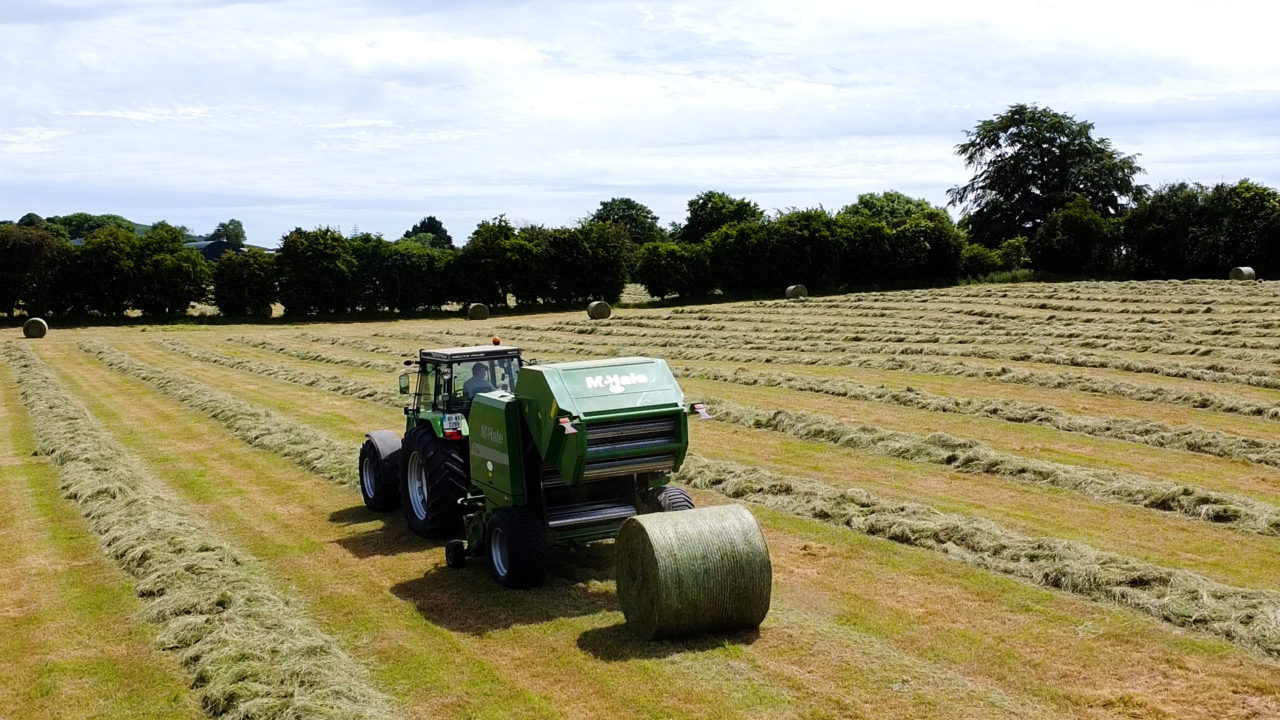TAMA group continues to follow its environmental strategy of reduce, reuse, replace, with its line of recycled twine.
Over the years, Tama has already reduced and re-used waste from its own manufacturing operations, looking at every stage of plastic production to develop more sustainable netwrap and twines.
Being aware that for the foreseeable future plastic is an essential part of agriculture and the baling sector in particular Tama understand that agricultural plastic waste is a challenge that urgently needs to be addressed.
Protecting land for future generations
Changing to more sustainable manufacturing methods will protect the land so that future generations of farmers will be able to continue to grow the food we all depend on.
TAMA implemented a collection and recycling process in cooperation with Adivalor in France and Healix in the Netherlands.
This starts on the farms with the removal, shaking (i.e. cleaning) of netwrap and twine and the subsequent collection via Adivalor.
This plastic waste is then taken to the Healix recycling plant in Maastricht, where the recyclable material is cleaned and re-processed into high quality infinity polymers. These polymers are then repacked and shipped to Tama’s manufacturing factories and returned to the fields as new crop baling products.

Having been thoroughly tested in markets across the globe to ensure consistency in strength and quality, TAMA’s latest high-performance twines now use significant percentages of recycled content.
“These products are compatible with all balers and offer the same high performance and quality as our other Tama crop baling products,” commercial director for Tama Europe, Matthieu Defois said.
Recycled twine
The founder of Healix, Marcel Alberts, has been active in the fibre and technical textile industry for almost two decades. Using his knowledge and expertise, Marcel set up Healix to be a world leader in the transformation of plastic fibre waste.
Using new and innovative recycling techniques Marcel has built a facility that is unparalleled in cleaning and recycling plastic fibre waste.
Healix transform used ropes and nets from both the fishing and farming industries into virgin-like polymers for the manufacturing supply chain. The proven techniques, process, and design of the recycling plant enable the creation of high-quality end products.
The plastic fibre waste is processed into granules in three steps:
- Big bales of used twine are shipped to the Healix facility in Maastricht direct from farms across Europe;
- Using specialised machinery, the fibres are reduced in size and the small particles are thoroughly washed and dried to make sure they are clean;
- Finally, the particles are melted, filtered, and processed into granules, which are then shipped to Tama to be transformed back into new Crop Baling Products.
What this means for Ireland
In Ireland we have probably the best collection scheme in the world run by the Irish Farm Film Producers Group (IFFPG). It provides a cost-effective compliance scheme to members and a comprehensive recycling and collection scheme to farmers throughout the country.
Farmers bring their waste plastic to one of the hundreds of collection sites around the country in half-tonne bags ready for recycling.
However, often the returned materials contain far more than just used plastic; from stones, tools, straw soilage and moisture, Tama has found it all and it’s all costing you more money.
By shaking out the soilage and moisture from the waste before recycling, it can be two to three times lighter, which means two to three the cost at the collection centre. Remember: You are charged by the tonne.
In addition, by separating the waste (netwrap separate from twine), it can be returned to the Healix factory in Holland where it will be transformed into the raw materials used to remake netting, twine and stretch film.
Tama
By 2025, Tama aims to be the world’s most efficient crop bailing products producer by returning an average of 65% of used crop baling products direct to the farm, using an average of 30% recycled materials in its baling products and significantly reducing our need for the production of virgin materials
Its factories already have zero waste in the production process. All waste material is collected and recycled back into our products.
The company said this is just a small part of its drive for a more sustainable and environmentally friendly business model and asks all end users to join it in keeping agricultural plastic out of landfill and protecting the land for generations to come.
For more information on Tama products, click here.

